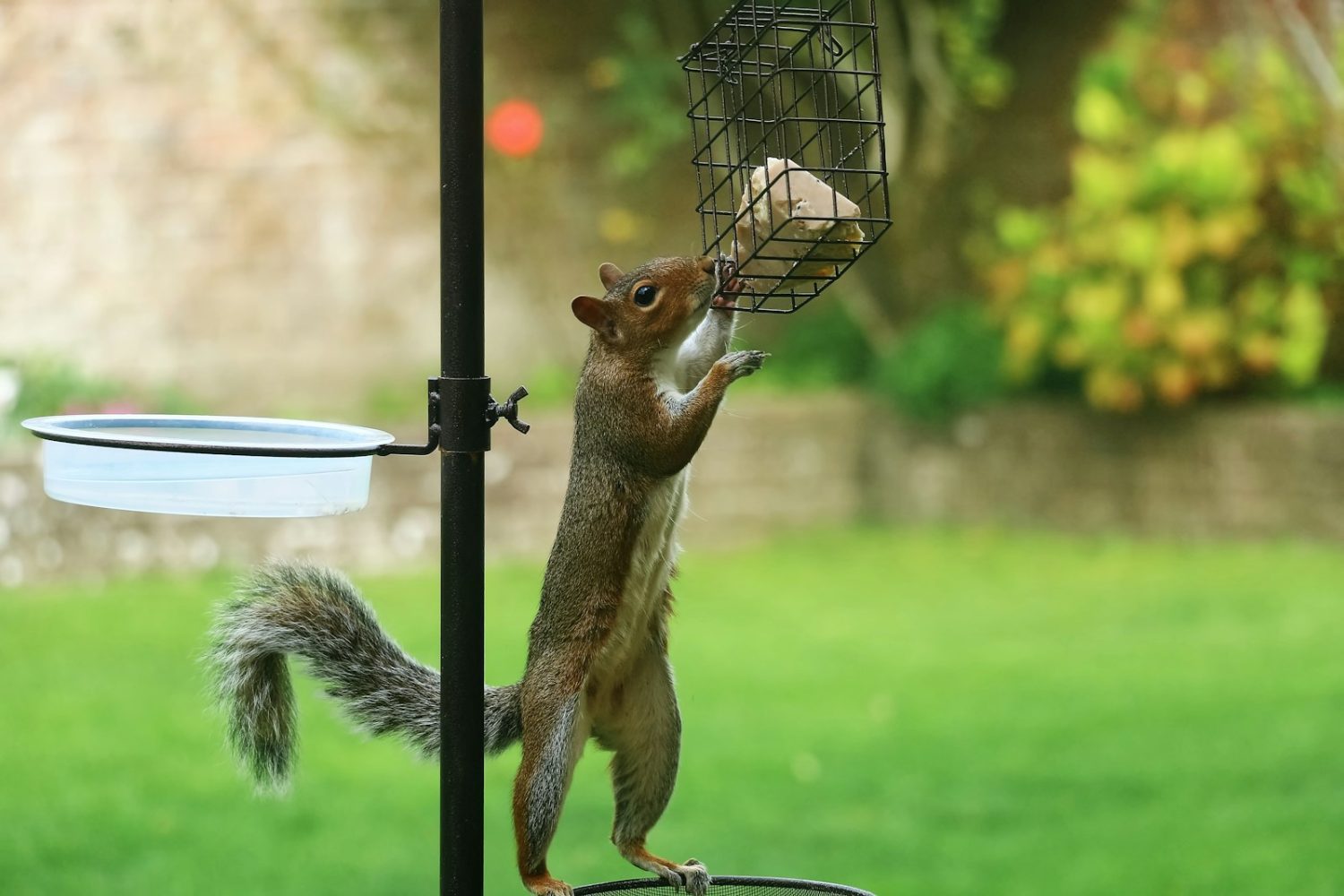You spend weeks planting, watering, and caring for your garden. Then one morning, you step outside to find half-eaten tomatoes, missing bulbs, and overturned pots. The culprits? Squirrels. These lively little animals may look charming when chasing each other across the yard, but in the garden they can be a real headache.
The good news is that you don’t need to give up your harvest or your flowers. With some smart strategies, you can protect your garden without harming the squirrels. Let’s explore why they invade in the first place, and then walk through effective ways to keep them at bay.
Why Squirrels Target Gardens
Squirrels are opportunists. They’re always on the lookout for easy food and safe shelter. Gardens offer both.
- Food sources: Fruits, vegetables, nuts, bulbs, seeds, and even tender seedlings all attract hungry squirrels.
- Shelter: Dense shrubs, compost piles, or mulch provide cozy hiding places.
- Water: Bird baths, fountains, and even drip irrigation can become squirrel water stations.
Understanding these motivations helps us choose solutions that make the garden less appealing to them.
Practical Ways to Deter Squirrels
You don’t have to rely on one single method. In fact, combining several approaches works best. Here are some of the most reliable tactics.
1. Physical Barriers
The simplest way to keep squirrels out is to block them.
- Fencing: Use wire mesh or chicken wire with openings no larger than 1 inch. Bury the bottom a few inches underground to stop squirrels from digging.
- Netting: Drape bird netting or mesh over fruit trees, berry bushes, or raised beds. Secure it tightly so squirrels can’t slip under.
- Cages: Individual plants—like tomatoes or sunflowers—can be protected with small mesh cages.
2. Natural Repellents
Strong smells and tastes can turn squirrels away.
- Spices: Sprinkle crushed red pepper, cayenne, or garlic powder around plants. Reapply after watering or rain.
- Homemade spray: Mix water with hot sauce or garlic and spray it on leaves. This won’t hurt the plants but discourages nibbling.
- Commercial repellents: Many garden centers sell sprays made with natural oils like peppermint or predator urine.
3. Habitat Adjustments
Make your garden less welcoming.
- Clean up fallen fruit, nuts, and birdseed—these act as open invitations.
- Limit hiding spots by trimming back dense shrubs and reducing thick mulch layers.
- Protect bulbs by planting them under a layer of chicken wire or in bulb cages before covering with soil.
4. Distraction Feeding
Some gardeners find success by giving squirrels their own food station away from the main garden. A feeder filled with corn or nuts can draw them off to another corner of the yard. Just note—this can also attract more squirrels, so use this method carefully.
5. Scare Tactics
Squirrels are cautious and dislike surprises.
- Motion-activated sprinklers: These give a quick burst of water when squirrels enter the garden.
- Reflective objects: Hanging old CDs, foil strips, or pinwheels can startle squirrels.
- Garden owls or fake predators: These can work short-term, but squirrels get used to them unless you move them often.
Long-Term Balance in the Garden
It’s important to remember that squirrels are part of the ecosystem. They plant trees by burying nuts, feed larger predators, and add life to the backyard. The goal is not to eliminate them completely but to protect your plants and create balance.
That means mixing methods: strong fencing for vegetables, netting for fruits, a sprinkle of spice around seedlings, and tidy garden habits all year long. When these tools work together, squirrels move on to easier meals elsewhere.
Peaceful Harvests Ahead
Keeping squirrels out of the garden takes patience, but it can be done. With barriers, repellents, and a few clever tricks, you can save your flowers, fruits, and vegetables from becoming squirrel snacks.
In the end, it’s about protecting the joy of gardening. When your tomatoes ripen unspoiled, your tulips bloom untouched, and your birdseed stays in the feeder instead of scattered on the ground, you’ll know your efforts paid off. The garden becomes yours again—calm, abundant, and ready to share only with the visitors you choose.

